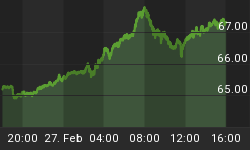A major policy shift is coming out of Europe. About a week ago the EU Commission decided that there should be more flexibility in the Stability Pact. Remember, the Stability Pact limited member countries' deficits to no more than 3-percent of GDP.
Under the news rules member countries will be allowed to run higher deficits for longer periods of time, if so needed. Therefore, the "one size fits all" rule is now gone, meaning that the Stability Pact is, for all practical purposes, dead. This has enormous implications for European economic growth rates and more importantly perhaps, for the euro exchange rate.
The Stability Pact was the bulwark of the euro's strength since its inception. Indeed, in a region where you saw high unemployment, sluggish or non-existent economic growth and massive structural inefficiencies, there is little fundamental justification for a strong currency. But the Stability Pact made the euro strong because it mandated anti-inflationary or even deflationary policies even if economic growth was weak. In other words countries in the Eurozone were not able to stimulate aggressively if their economic growth was weak. It therefore caused monetary growth rates to remain weak and that created an artificial shortage of euros and a global short squeeze developed. This has been the entire reason for the euro's rise in the past two years.
However, with EU member countries having been given the green light to ramp up deficits and maintain them for longer periods of time, growth will take precedence over inflation fighting, and euro creation will rise (perhaps rapidly) causing the euro to fall. You should start shorting the euro--aggressively--on any rallies now. It is going a lot lower.
With the Stability Pact now (de-facto) dead, the euro will begin a long-term decline. THIS IS A MAJOR TRADE!!!















